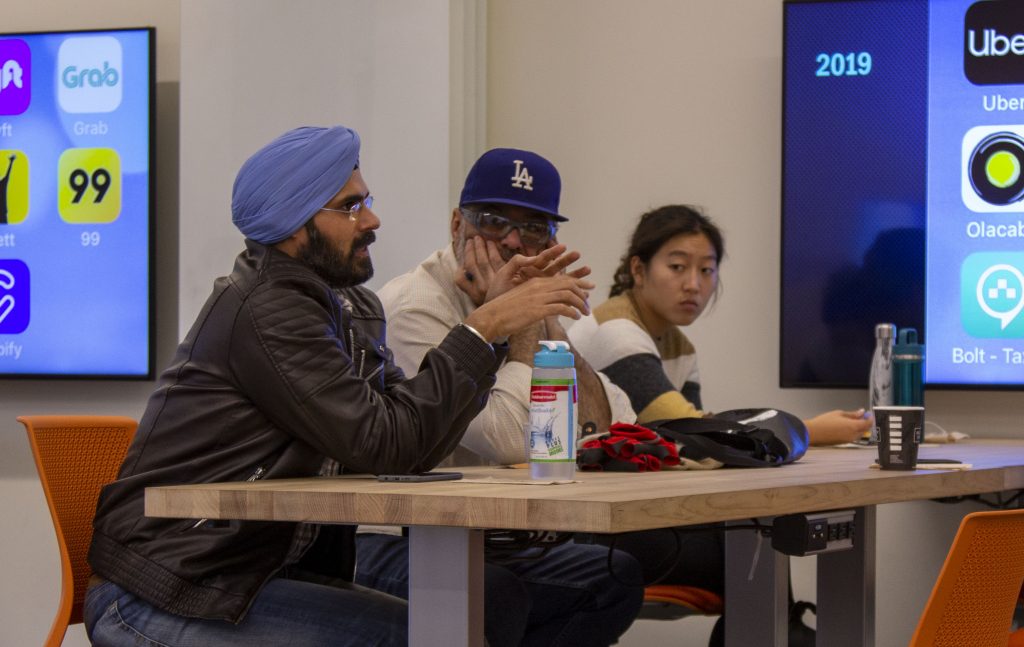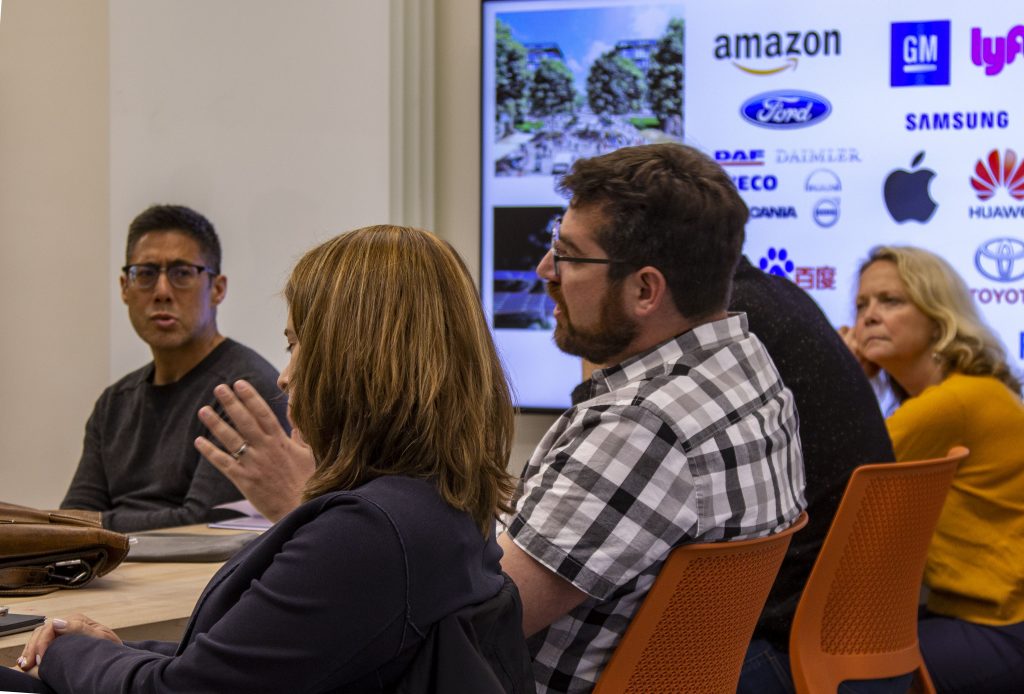UTTRI associated faculty Professor Paul Hess and Professor Shauna Brail spoke at the June 13 seminar in the Cities By Design: The Future of Urban Mobility series, part of the Urban Challenge Project Seminars presented by the School of Cities in partnership with UTTRI.
Professor Steven Farber warmly welcomed the crowd and introduced the speakers.

Next, Professor Paul Hess presented “Pedestrians and Street Design in the Age of Automated Vehicles: A Review.” His AV literature review, including both academic and grey papers, revealed little mention or consideration of pedestrians in any research or discussion into changes needed to street design to optimize the automated vehicle experience.

Professor Shauna Brail followed with her presentation “Regulating Ride-Hailing in Canadian Cities.” She began by saying that only three short years ago, ride-hailing was not a regulated form of ground transportation in any Canadian municipality. By mid-2019, more than two-thirds of Canada’s 30 largest municipalities had introduced ride-hailing regulations and another four are expected to do so by the end of 2019.
Brail analyzed the rollout of regulations and policy to date, considered the challenges for municipalities and existing forms of ground transportation in incorporating ride-hailing, and highlighted potential opportunities and disadvantages associated with the growth of ride-hailing in Canadian cities.

Following the presentations, attendees asked questions and engaged in further discussion.

Forthcoming seminars
Thursday, June 27, 3-5 p.m., Rm BA 2139, 40 St George Street
- Professor Jonathan Hall, “How is Uber Affecting Public Transit?”
- Professor Nate Baum-Snow, “Are Highways Good for Cities?”
Dates and locations for seminars in July and August to be confirmed.
About Cities By Design: The Future of Urban Mobility
For the first time in history, the majority of people live in urban settings. Cities are the engines of economic growth, but are plagued with challenges relating to resource allocation, constrained government spending, ecosystem protection, creating migrant and youth opportunities, social inequities, labour market changes and infrastructure aging. Thrown into this arena, emerging technologies such as automated and connected vehicles, ride-hailing services, Mobility-as-a-Service platforms, and micro-transit are threatening rapid changes to our mobility systems. The academic and policy debates are rife with visions of new mobility utopias, where technology drives improvements in efficiency, CO2 emissions, and social inclusion. Also prominent are visions of mobility dystopias, where private vehicles control more of the public realm, mobility benefits are concentrated among the wealthy, and labour standards are eroded. Cities now face the massive challenge of evaluating the potential benefits, costs, and unintended consequences of integrating a heterogeneous mix of promising technologies with existing transportation infrastructure and mobility services.
In light of this uncertainty, it is imperative that we conduct evidence-based research to guide transportation policy to achieve the many positive promises of emerging technologies, while ameliorating the inherent risks in technology-induced disruption. The Future of Urban Mobility seminar series will provide the U of T community a space to engage on these topics and explore research opportunities with the Mobility Cluster at the School of Cities.

